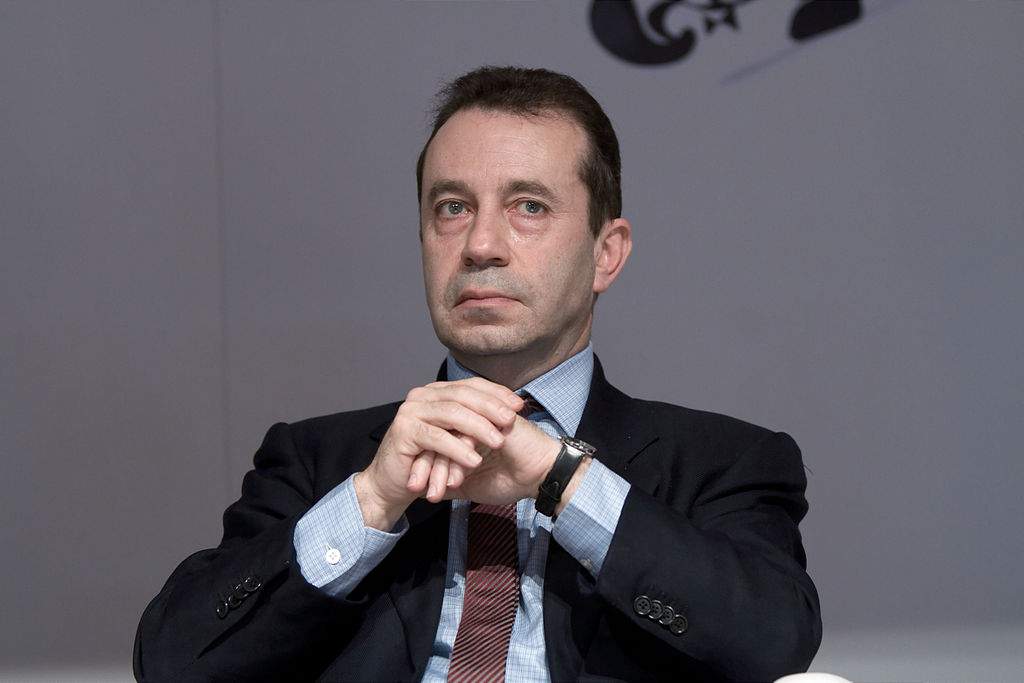Venice, a new director for Palazzo Grassi: he is Frenchman Bruno Racine. He succeeds Martin Bethenod
It was announced today by François Pinault the name of the new director of Palazzo Grassi - Punta della Dogana, the important museum center in Venice that is among the most active in contemporary art: he is Frenchman Bruno Racine, who succeeds compatriot Martin Bethenod, at the helm of the museums from 2010 until today. Bethenod, who had also been responsible for directing the future Bourse de Commerce museum since 2016, will devote himself entirely to the development of the new Parisian institute, which is scheduled to open in June 2020.
Racine, born in Paris in 1951, trained in classical literature at the École normale supérieure and then continued his studies at the École nationale d’administration, becoming auditor of the Paris Court of Auditors in 1979. Several times in charge of foreign affairs, he held important administrative posts in France and was director of the Quai d’Orsay’s Center for Analysis and Forecasting from 1993 to 1995. In the cultural field, Racine was director of Cultural Affairs for the city of Paris (from 1988 to 1993) and director of the French Academy in Rome, Villa Medici, from 1997 to 2002. During his Roman tenure, he promoted an extensive international exhibition program of contemporary art.
Again, from 2002 to 2007, succeeding Jean-Jacques Aillagon, he served as president of the Centre Pompidou and then became president of the Bibliothèque nationale de France, a position he held from 2007 to 2016. In the latter role, he gave an important impetus to the institution’s digital turn, also orienting it toward contemporary art through a series of exhibitions on the links between artists and literature (Sophie Calle, Richard Prince, Matthew Barney, Anselm Kiefer). Returning to the ECA in 2016, he was charged in 2019 by the Minister of Culture with a perspective mission dedicated to authors and creative action. Currently, Bruno Racine is president of the Fondation pour la recherche stratégique (FRS), the Studio national des arts contemporains-Le Fresnoy and the Association pour le développement de la Bande dessinée in Angoulême. In addition, Racine, a connoisseur of Italian culture and language, chairs the Paris committee of the Dante Alighieri Society. In addition to his institutional activities, Racine is also known for his qualities as a writer, having published several novels with the Grasset publishing house(The Governor of Morea, first novel prize in 1982; Terre de promission, 1986; Au péril de la mer, Deux-Magots prize, 1991; La séparation des biens, 1997; Le Tombeau de la Chrétienne, 2002; Le côté d’Odessa, 2007) and at Gallimard(Adieu à l’Italie, 2012; La voix de ma mère, 2015). He has also published several books on Italy at the Flammarion publishing house(L’art de vivre à Rome, 1999; L’art de vivre en Toscane, 2000) and at PUF(Les Cent mots de Rome, PUF, 2018). He is also the author of an essay on the digital challenge(Google et le Nouveau monde, Plon, 2010).
“With the appointment of Bruno Racine as director of Palazzo Grassi - Punta della Dogana and the confirmation of Martin Bethenod’s appointment at the Bourse de Commerce,” reads a note, “François Pinault wishes to renew his will in support of a specific and at the same time harmonious development of the two museum poles of the Pinault Collection, in Venice and Paris. Wishing them success in pursuing their missions, François Pinault thanks Martin Bethenod for the efficiency and enthusiasm with which he directed Palazzo Grassi - Punta della Dogana for ten years.”
Pictured: Bruno Racine. Ph. Credit Georges Seguin
 |
| Venice, a new director for Palazzo Grassi: he is Frenchman Bruno Racine. He succeeds Martin Bethenod |
Warning: the translation into English of the original Italian article was created using automatic tools. We undertake to review all articles, but we do not guarantee the total absence of inaccuracies in the translation due to the program. You can find the original by clicking on the ITA button. If you find any mistake,please contact us.





























